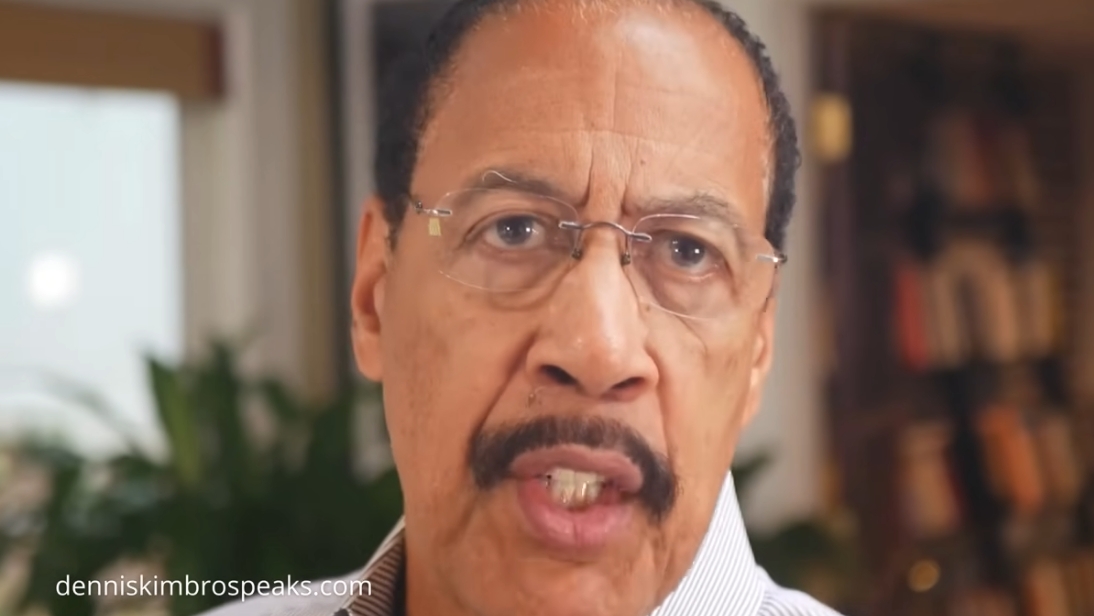In a world where the odds often seem stacked against us, the story of Clarence serves as a powerful reminder that with unwavering determination, self-belief, and a thirst for knowledge, even the most daunting challenges can be overcome. This inspiring tale, shared by Dr. Dennis Kimbro, a renowned educator and New York Times bestselling author, shines a light on the transformative power of self-education and the relentless pursuit of one’s dreams.
From Rock Bottom to Remarkable Success
Clarence’s journey is a testament to the human spirit’s resilience. Once homeless and struggling with depression, Clarence found solace and guidance in the pages of two life-changing books: “Think and Grow Rich” by Napoleon Hill and the works of Dr. Kimbro himself. These literary beacons ignited a spark within Clarence, fueling his determination to turn his life around.
As Clarence shared his story with Dr. Kimbro, the profound insights he had gleaned from his self-education journey became clear. He emphasized that the starting point of all achievement is desire – the burning passion that drives us to overcome obstacles and reach for our highest potential. Equally important, Clarence stressed the crucial role of faith in one’s own abilities, a belief that serves as the foundation for transformative change.
The Power of Self-Education and Specialized Knowledge
Clarence’s remarkable transformation underscores the immense value of self-education and the acquisition of specialized knowledge. By immersing himself in the timeless wisdom of Napoleon Hill and Dr. Kimbro’s teachings, Clarence equipped himself with the tools and mindset necessary to navigate his journey from homelessness to success.
As Dr. Kimbro aptly noted, Clarence’s story is a testament to the power of investing in oneself. In a world that often prioritizes formal education and credentials, Clarence’s example serves as a reminder that true knowledge and growth can come from a deep personal commitment to learning and self-improvement.
The Importance of Persistence and Consistent Effort
Clarence’s journey was not without its challenges, but his unwavering persistence and consistent effort were the driving forces behind his remarkable transformation. He understood that success is not a destination, but a continuous journey that requires dedication, resilience, and a willingness to put in the hard work.
As Clarence wisely observed, “You will never receive more than what you believe you deserve.” This powerful statement underscores the need to cultivate a mindset of abundance, where one’s self-worth and expectations are not limited by external circumstances or societal norms.
Lessons for Personal and Professional Growth
Clarence’s story offers invaluable lessons for individuals seeking personal and professional growth. It highlights the transformative power of self-education, the importance of faith in one’s abilities, and the necessity of persistent, consistent effort in the pursuit of one’s dreams.
For those seeking to emulate Clarence’s success, the following key takeaways can serve as a guiding light:
- Cultivate a burning desire for change and personal growth.
- Develop unwavering faith in your own capabilities and potential.
- Embrace the power of self-education and seek out specialized knowledge.
- Persist through challenges with resilience and a commitment to consistent effort.
- Adopt a mindset of abundance, where you believe you deserve to achieve your dreams.
As Dr. Kimbro so eloquently stated, “Your wealth choice is your best choice.” Clarence’s story is a testament to this truth, demonstrating that the greatest wealth lies not in material possessions, but in the transformative power of self-belief, self-education, and the relentless pursuit of one’s aspirations.
Unlocking Your Own Potential
Clarence’s journey from rock bottom to remarkable success is a powerful reminder that the path to greatness is not reserved for the privileged few, but is accessible to all who are willing to invest in themselves and embrace the transformative power of self-education and persistence.
By taking inspiration from Clarence’s story and applying the lessons he has shared, we can all unlock our own potential and embark on a journey of personal and professional growth that defies the odds and redefines the boundaries of what is possible.
“Remember, as Clarence wisely noted, you will never receive more than what you believe you deserve. Keep grinding, stay focused, and always strive to add value to your life and others.”
– Dr. Dennis Kimbro
So, let Clarence’s remarkable transformation be a beacon of hope and a call to action. Embrace the power of self-education, cultivate unwavering faith in your abilities, and persist with relentless determination. The path to success may not be easy, but with the right mindset and a commitment to your own growth, the possibilities are truly limitless.


